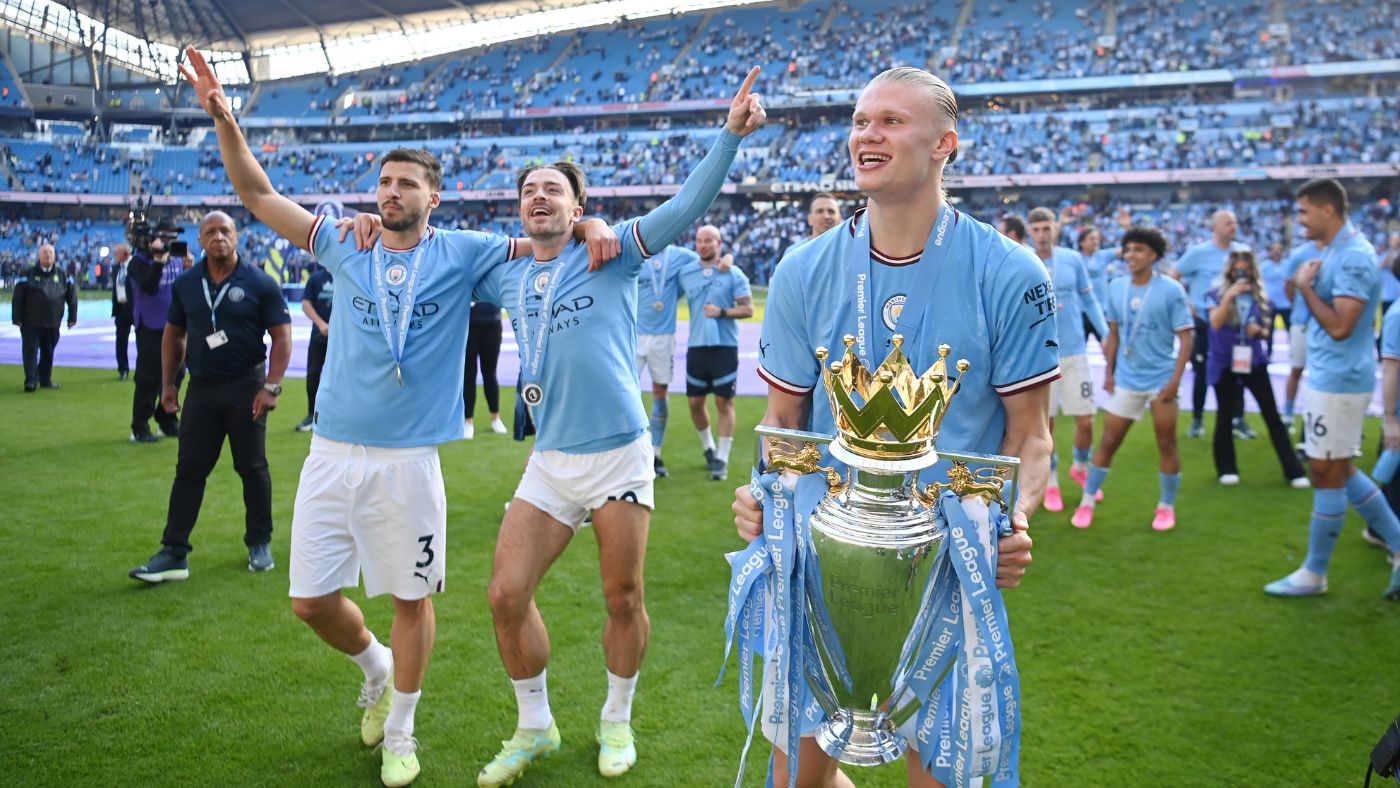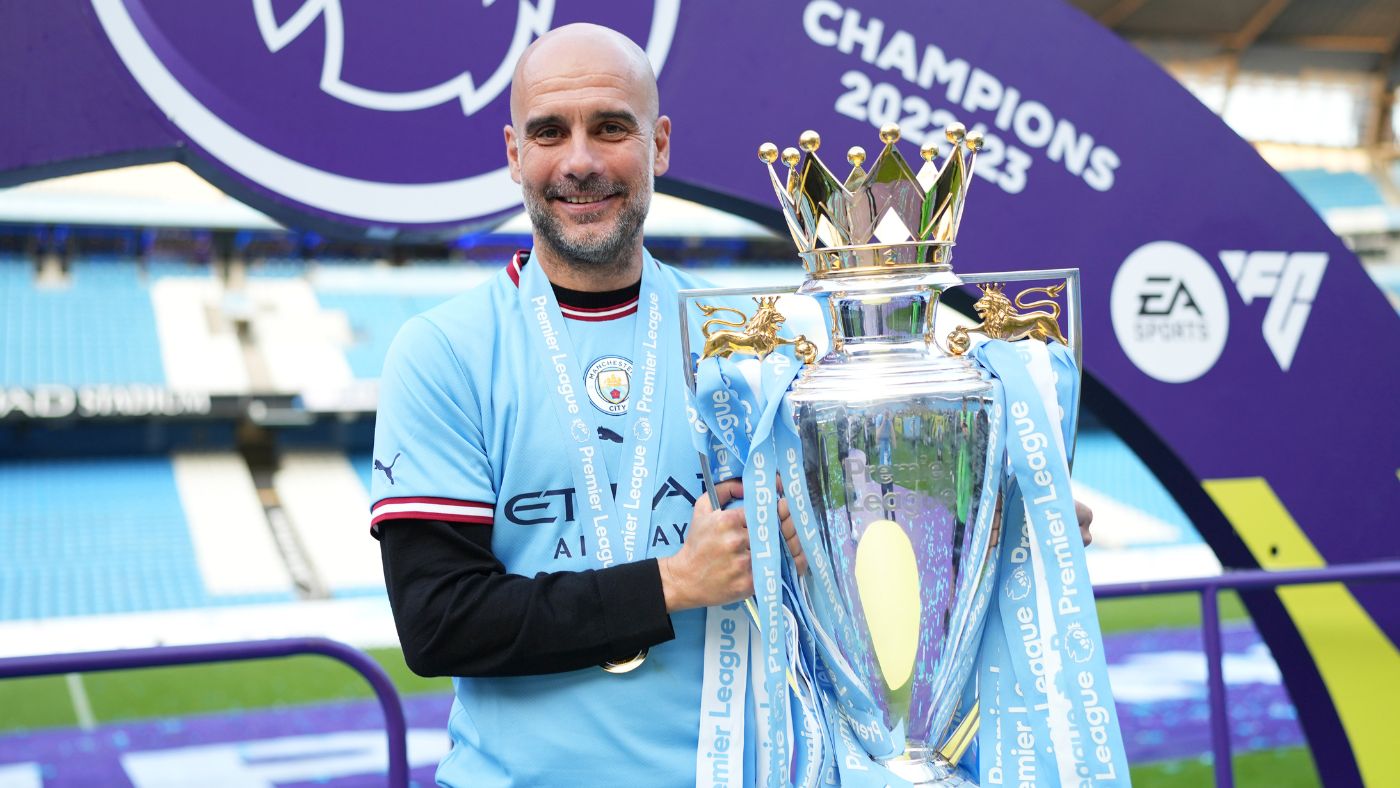Man City: can ‘one of the best sides in history’ win the treble?
Guardiola’s Premier League champions have two more trophies in their sights

A free daily email with the biggest news stories of the day – and the best features from TheWeek.com
You are now subscribed
Your newsletter sign-up was successful
At the start of this year, Manchester City had a “rough” few weeks, said Sam Lee on The Athletic. Their Premier League campaign was stuttering (at one point in January they were eight points adrift of Arsenal), and on 11 January they were dumped out of the Carabao Cup by relegation-bound Southampton. Even more concerning for manager Pep Guardiola was that “word of disharmony in the Manchester City camp had spread far and wide”. He himself acknowledged this, referring in interviews to the poor “body language” and “mood of his players”. How things have turned around since then. Last weekend, having won their previous 12 Premier League matches, City were crowned champions for the third year in succession. And with the FA Cup final against Manchester United on 3 June and the Champions League final against Inter on 10 June, their season has every chance of getting better still. Should City claim both titles, they will become only the second English club after Man Utd to win a treble. Their status as “one of the best sides in history” will at that point be beyond dispute.
If you want an explanation for City’s current dominance of English football, you have to start with the fact of their vast resources, said James Ducker in The Daily Telegraph. This was laid bare on Sunday, when City began their title coronation match against Chelsea with “£484m worth of talent on the bench”. The starting line-up Guardiola chose to field contained only two players – Kyle Walker and Manuel Akanji – who had started City’s Champions League semi-final second leg against Real Madrid the previous week. The likes of Kevin De Bruyne, Erling Haaland and Bernardo Silva were all rested. And yet this “second string” still enjoyed 65% possession as they easily overcame Chelsea, a team that itself has “had lavished more than £550m on players in eight months”. It was a display which suggested that Leeds manager Sam Allardyce “may have been on to something” when he said City “have the best two teams in the Premier League”.
Yes, City’s success has much to do with the spending power of owner Sheikh Mansour, said Jamie Carragher in The Daily Telegraph, but you can’t attribute it solely to that. Were money all that mattered, Manchester United (who’ve spent more than City on players in the last decade) wouldn’t be so far behind; “Paris Saint-Germain would be delivering similar standard performances”. What sets City apart is the fact that they have, in Guardiola, the most visionary manager of modern times.
The Week
Escape your echo chamber. Get the facts behind the news, plus analysis from multiple perspectives.

Sign up for The Week's Free Newsletters
From our morning news briefing to a weekly Good News Newsletter, get the best of The Week delivered directly to your inbox.
From our morning news briefing to a weekly Good News Newsletter, get the best of The Week delivered directly to your inbox.

City certainly wouldn’t have lifted the Premier League trophy in five of the past six seasons had it not been for the Catalan’s manic work rate and superb motivational skills, said Paul Hirst in The Times. But another of his qualities is perhaps even more important – and that’s his commitment to changing his tactics. No other manager has grasped as fully as Guardiola that the key to maintaining supremacy in football is to avoid the trap of becoming predictable. “Every year he tries something new, whether it be a tweak in formation or the redeployment of a player in a new position.” This season’s innovation has come at the back, with his adoption of the inverted full-back – a requirement that one of the back four (usually John Stones) moves to what is effectively a midfield role whenever City have possession. Stones has been a revelation in this role: witness the way he “was running rings around Real Madrid’s midfield” during last week’s 4-0 victory in the Champions League semi-final second leg.
Some claim that City’s current dominance is worrying for the future of English football, said Martin Samuel in The Times. They predict that it will “turn the Premier League into a dull, predictable battle for second place” – the equivalent of Germany’s Bundesliga, long dominated by Bayern Munich. Such arguments, however, overlook the fact that “sporting success is about individuals, not institutions”. City wouldn’t have won what they have in recent years had it not been for Guardiola – in the same way that Manchester United’s success during the 1990s and 2000s owed everything to Alex Ferguson. Guardiola will “eventually leave”, and at that point things are likely to change. “City didn’t dominate before he arrived, and chances are they won’t after he has left, either.”
A free daily email with the biggest news stories of the day – and the best features from TheWeek.com